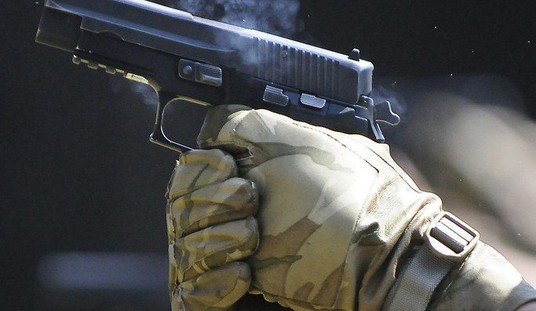I’m not a fan of doctors talking to their patients about guns outside of a handful of specific circumstances. Mostly because I don’t think it’s any of their business. There are exceptions, of course.
One exception I’m willing to tolerate personally is if my daughter’s pediatrician decides to remind me to keep weapons properly stored and to use eye and ear protection when I take her shooting. In my mind, that’s certainly within his lane, at least to some degree.
Yet a study seems to take issue with the fact that pediatricians talk to their patients’ parents more about smoke detectors and guns.
Talking about guns can be difficult, even for physicians.
That’s according to a new study published Monday in JAMA Pediatrics. The study found that pediatricians and pediatric residents were less likely to ask their patients about gun storage safety than smoke alarm safety — indicating an overall hesitation in bringing up gun safety with their patients.
A team of doctors and researchers analyzed health records collected between January 2017 and July 2018. The team added questions about gun storage safety and smoke alarm safety to questionnaires completed during regularly scheduled pediatric check-ups during that time.
The smoke alarm questions were meant as a counter to the question about guns, and researchers purposefully chose something they deemed “noncontroversial,” said lead author Carole Stipelman. The questions were placed one right after the other, so skipping the question about guns would have been a conscious effort, she told CNN.
From there, researchers looked at how often pediatricians and residents were asking these questions.
Interesting.
However, there are also some other interesting facts that might have had an impact, such as the actual risk involved with either of these. For example, if you look at the numbers, fires are more likely to be a problem than firearms.
According to the National Fire Protection Association, an average of 2.560 citizens are killed by fires each year. These are all awful and most of the time, they could probably be prevented with the use of functioning smoke detectors.
By contrast, between 2006 and 2016, 6,885 people were killed in accidental shootings. That’s not an average, but a total. The average is 688.5 people. That’s a lot fewer than are killed in fires.
In other words, people are far more likely to lose their lives in fires than to guns. While the total number of people shot and killed unintentionally doesn’t break it down by age, neither does the average number of people killed in fires.
Now, I’m someone who spends a good bit of time looking stuff up on the internet, but let’s be honest. It’s not rocket science. It wouldn’t be hard to imagine doctors may have looked themselves and seen that their patients are more likely to die in a fire than by a firearm. As such, why not focus on asking those questions?
Plus, frankly, how many of the doctors opted not to ask about guns because, frankly, they realized it’s none of their business? Maybe they’re gun owners and recognized they wouldn’t appreciate someone prying into their life about such a topic?
Honestly, the study only shows that doctors aren’t asking these questions. It doesn’t really explain why, nor should it.
How about you stop trying to get doctors to lecture me and folks like me. It’s not their job to do your dirty work.







Join the conversation as a VIP Member